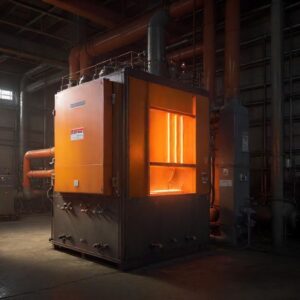135000 BTU Furnace Calculator
Understanding the 135000 BTU Furnace
A 135,000 BTU furnace is a powerful unit designed primarily for heating larger spaces, such as homes or commercial buildings. The BTU, or British Thermal Unit, measures the furnace’s capacity to produce heat. In this article, we’ll explore how to utilize this type of furnace effectively, key details, and advantages of its use.
How the 135000 BTU Furnace Works
The 135000 BTU furnace operates by burning fuel, such as natural gas or propane, to create heat. The heat produced is then distributed throughout your space via ducts or radiators. A proper understanding of the workings can help maximize efficiency and comfort.
Step-by-Step Guide to Choosing a 135000 BTU Furnace
- Calculate Your Space’s Heating Requirement: Determine the square footage of the area you wish to heat.
- Check Insulation: Ensure that your space is adequately insulated to retain heat.
- Choose the Right Furnace Type: Opt for the furnace that best suits your heating needs, whether it’s gas, oil, or electric.
- Installation: Consider hiring a professional for proper installation to ensure efficiency.
Benefits of Using a 135000 BTU Furnace
Utilizing a 135000 BTU furnace has several advantages:
- Efficient heating for larger spaces.
- Reduced energy costs due to improved heating performance.
- Long-lasting durability with proper maintenance.
Common Mistakes to Avoid
Here are some common pitfalls when selecting or using a 135000 BTU furnace:
- Not accurately calculating your heating needs.
- Inefficient ductwork that leads to heat loss.
- Neglecting regular maintenance, which can lead to higher energy bills.
10 Key Facts About 135000 BTU Furnace
- What is BTU? BTU measures energy; for furnaces, it indicates heating capacity.
- How do you size a 135000 BTU furnace? Calculate by assessing the square footage and insulation quality.
- Can you upgrade to a 135000 BTU furnace? Yes, upgrading is feasible if your heating needs increase.
- What type of fuel does a 135000 BTU furnace use? Typically natural gas or propane, but electric models exist.
- What is the efficiency rating? Look for a high Annual Fuel Utilization Efficiency (AFUE) rating.
- How does installation affect performance? Professional installation ensures optimal efficiency and safety.
- Is maintenance important? Yes, regular check-ups prevent breakdowns and ensure efficiency.
- How long do these furnaces last? With proper care, they can last 15-20 years or more.
- Can you easily convert a 135000 BTU furnace? Yes, especially if switching fuel types.
- Do you need permits for installation? Often yes, depending on local building codes.
Wow, 135,000 BTU, that’s a beast! 😂 I could heat my whole neighborhood with that thing! But for real, how do you even know if you need that much power? Got any tips on sizing for smaller spaces?
Wow, a 135000 BTU furnace sounds super powerful! 😮 I’m curious though, is it really necessary for an average-sized home? I’ve heard bigger isn’t always better, ya know? Any tips for efficiency?
I mean, 135,000 BTUs is a lot! How’s that compared to standard models? I feel like it might be overkill, but I could be wrong. How’s the noise level? Because, yeah, that matters too!
Honestly, I thought bigger BTU meant bigger bills. Hoping this thing doesn’t break the bank! Anyone with experience on this furnace? Would love to hear if you’re saving on heating costs!